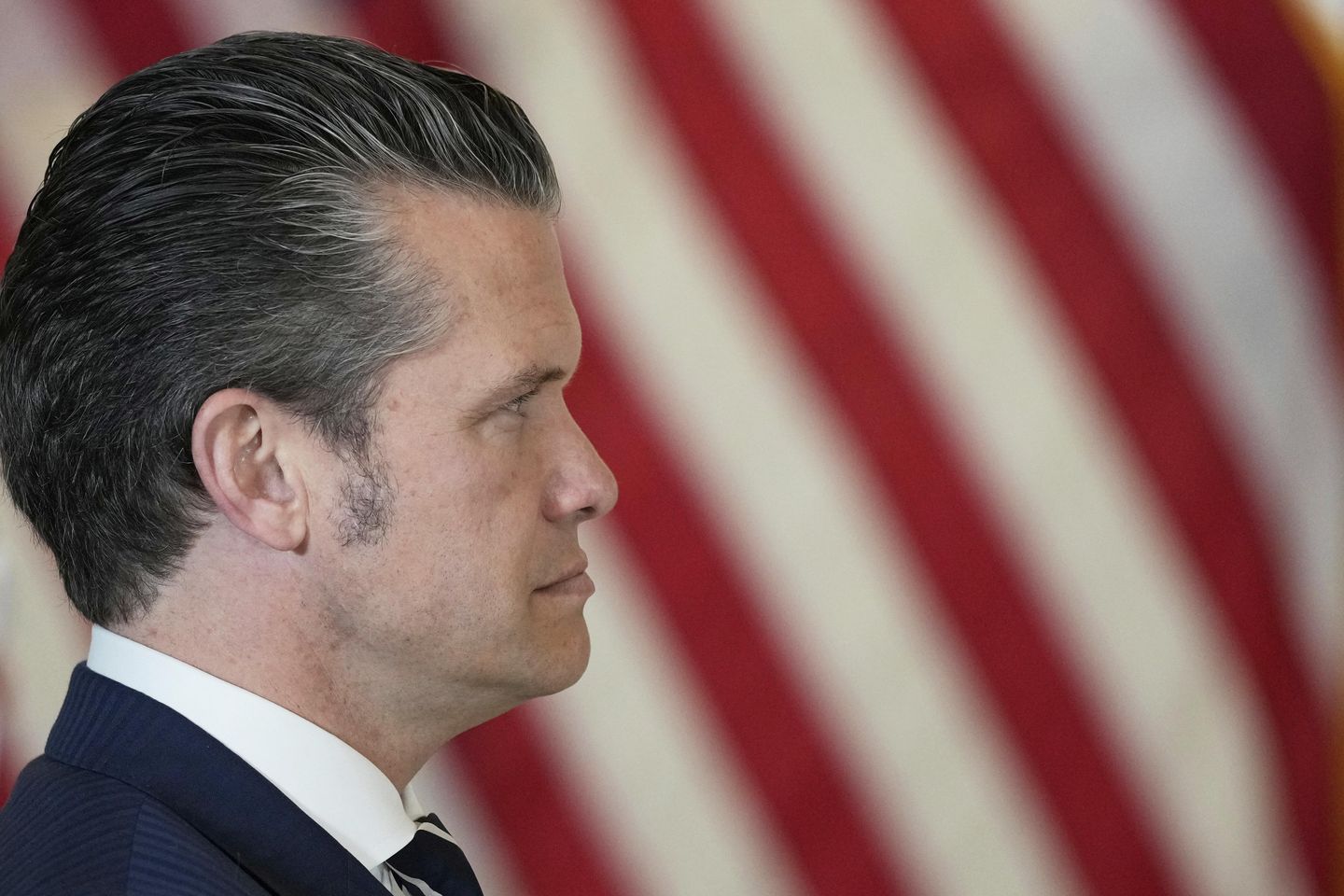
Secretary of Defense Peter Hegseth will be in the spotlight Friday at a high-profile annual defense conference in Singapore attended by Asian politicians, military officials and industry executives, including representatives from China.
The Trump administration official is expected to make the case at the three-day Shangri-La Dialogue that Asian allies should strengthen ties with the U.S. amid growing concerns about China flexing its economic and military muscle in the region.
The Friday-to-Sunday conference offers Mr. Hegseth his first opportunity to interact face-to-face with senior Chinese security officials, as well as politicians, officers and pundits from across the Indo-Pacific.
Mr. Hegseth’s well-publicized focus on upgrading U.S military lethality contrasts with China’s operational approach in the region.
While pundits focus on China’s expanding nuclear, naval and aerial arsenals, Beijing, which has not fired a shot in anger since a skirmish with Vietnam in 1988, is currently advancing using nonlethal tactics.
Indian defenses in the high Himalayas appear, after lethal punch-ups in 2022, to have halted Chinese advances over disputed territory. Japan’s Coast Guard is — despite pressure — holding Chinese Coast Guard and “maritime militias,” or weaponized fishing fleets, from the disputed Senkaku/Diaoyu islands.
Elsewhere, China is gaining ground.
According to the Maritime Transparency Initiative, it has terra-formed reefs and islets into a network of 27 outposts across the South China Sea — some with missiles and jetfighter airstrips.
Though America and its allies conduct “Freedom of Navigation” operations off these islands, experts agree that the South China Sea — in time of war — would be a denied area.
The process continues west of the Philippines, a U.S. treaty ally. Chinese forces are pressuring Manila’s outposts, assaulting Coast Guards and denying waters to fishermen.
A related process is underway around Taiwan.
Since 2022, Chinese forces have been ignoring the prior red line in the center of the Taiwan Strait, and are using aggressive aerial and maritime maneuvers to inch ever closer to the democratic island. This process wears down Taiwanese forces and pre-position assets close to Taiwan.
Despite its aerial “chicken games,” seaborne rammings and small-boat boardings, China’s escalation control is masterly. No incidents — not the 2001 downing of a US spy plane on Hainan Island, nor edged- and blunt-weapon rucks in skiffs off the Philippines in 2024 — have escalated to a shootout.
U.S. forces lack similar capabilities.
Macron is the headliner
The conference in Singapore is run by a think-tank, the International Institute for Strategic Studies, or IISS. Since 2002, it has offered heads of state, defense ministers, operational commanders and related figures three days of communications opportunities.
This year’s keynote speaker is French President Emanuel Macron, while Mr. Hegseth and Malaysian Prime Minister Anwar Ibrahim will deliver addresses. Beijing’s attendees this year remain unknown: The full guest list is revealed by IISS 48 hours before the summit.
Decoding is required to assess the importance of Chinese delegates.
“The Pentagon is wary of being lowballed by the People’s Liberation Army,” said Alex Neill, a defence expert with Pacific Forum and former fellow with IISS. Beijing’s defence ministers, he said, lack the seniority of U.S defense secretaries, so in protocol terms, “someone from the [communist party’s Central Military Commission] would be appropriate,” Mr. Neill said.
Beijing sometimes deploys military academics, a delegation Mr. Neill predicted, given rumors that not even a minister will appear: “China might be wary of being put in the spotlight over things like Ukraine.”
Another worry for China is the outspoken nature of Trump administration officials.
“Many … have shown they are confrontational, but Shangri-La is not usually the place for that,” said Garren Mulloy, a professor of international relations at Japan’s Daito Bunka University. “If somebody wishes to engage in performative politics, it can be done as the media is there, but that is not the main purpose.”
Mr. Neill said Shangri-La’s best opportunities lie outside public plenaries and panels.
“There is micro diplomacy in the hotel between delegations, with bag carriers and aides running around,” he said, noting that senior operational officers — including China’s South Fleet Commander and America’s Indo-Pacific Commander — often attend. The ideal meetings combine “military diplomacy and operational level hard talk,” he said.












